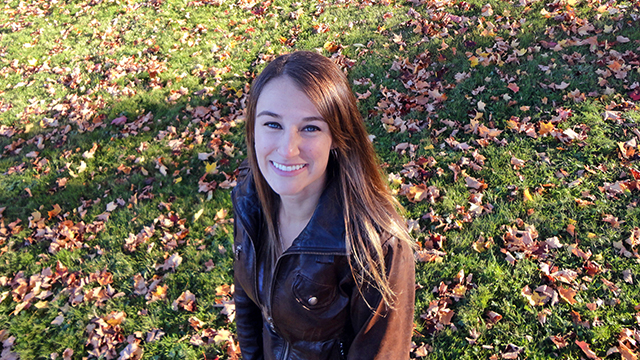
Lauren Cormier had dreamed about becoming a doctor, but never imagined she would actually go through with it. When she arrived at the University of Alberta, she was still in shock that she had made it into medical school, but she knew one thing for sure-as a Metis student looking to better understand and embrace her identity, the U of A felt like the right place for her.
Her journey began during her undergraduate program at Acadia University in Nova Scotia, where she joined the Indigenous Student Society of Acadia. There, she had the opportunity to meet other students she could relate to, and talk about what being Indigenous meant to them in today's world. When she was about to complete her degree and apply for medical school, she began looking for a university with similar support and resources for Indigenous students. She turned to the U of A's Indigenous Health Initiatives Program (IHIP) for the next phase in her professional life.
The IHIP admission process for the MD program involves the same requirements every other applicant has to complete, with an additional interview that includes a panel of Elders, Indigenous community members and physicians. The interview became one of Cormier's deciding factors in her choice of school. "It gave me the opportunity to show my true personality to a group of people that could relate to what I was saying," she says. "And they were genuinely interested in getting to know me. I remember telling my parents how much I enjoyed the day-which was strange because it's such a stressful time-and how I felt so at home at this school."
Over the past four years, Cormier combined her medical education with in-depth learning about her own identity. With the help of IHIP, she was able to connect with Metis Elders, who also included her in the community off campus. "The Elders brought my journey to the next level of understanding. I was quick to realize there were lots of people in a similar situation of trying to figure out where culture and tradition fits into our modern busy lives. I no longer felt alone in this process," she remembers.
Cormier was involved in several projects supporting prospective and current Indigenous students. She was part of the working group that created the faculty's Indigenous Gathering Space, a teaching, ceremony and meeting space for community members, Indigenous and non-Indigenous students. She contributed to initiatives to make Indigenous students more visible in university pamphlets and documents. She was an active member of the Indigenous Medical and Dental Student Association (IMDSA), and was part of the panel interviews for new IHIP applicants for three years.
From using the medicine wheel teachings to take care of her physical, mental and spiritual health, to being more grounded to navigate the challenges of medical school, guidance received from the Elders gave Cormier a strong foundation for her program.
"One of the biggest lessons I learned was that everyone has their strengths and weaknesses and we all grow throughout the process," says Cormier. "The way to be the best doctor you can be, is to listen to feedback and work on your weakness. You are not less of a doctor if you ask for help; if anything, it speaks to your character and your willingness to learn."
For her, part of the learning process also means being a little embarrassed from time to time for not knowing something, and being willing to laugh about it and continue with the journey. While medical school is not easy, she says it pays off in the end. "It is one hell of a roller-coaster through many different aspects of your life, so hold on and enjoy the ride. I promise it is well worth it at the end and you will be a better person because of it."
After completing this roller-coaster with success, Cormier is looking forward to starting a new ride as a physiatry resident at Western University. Excited for the future, she wants the lessons from the Elders and the meaning of being Metis for her to guide her practice as a physician.
"I have learned a lot from my community. It has taught me to truly listen and respect the role culture has in someone's life-no matter what culture my patient is from, it is so important to respect it as if it is your own, and make that known to create a culturally safe space for everyone."